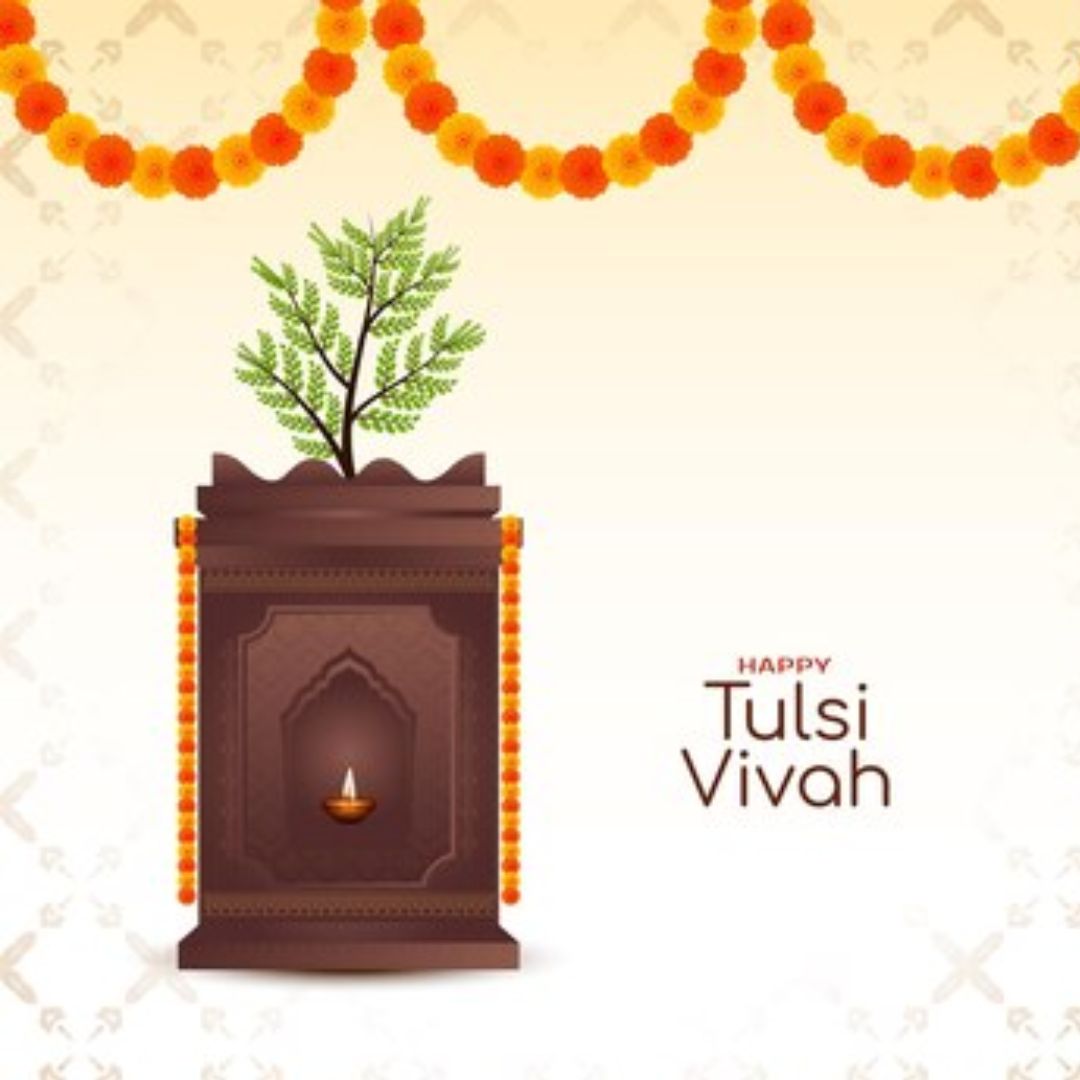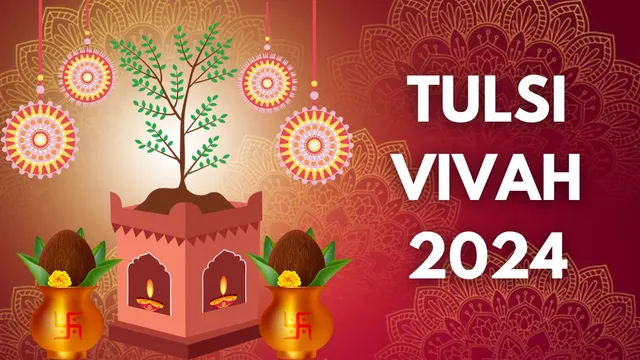- By Kashish Rai
- Wed, 13 Nov 2024 10:24 AM (IST)
- Source:JND
Tulsi Vivah 2024: The sacred marriage of Tulsi Devi and Lord Shaligram (Vishnu), takes place on the 12th day of Kartik month's bright fortnight. Although celebrations can begin on Prabodhini Ekadashi (11th day) and continue until Kartik Poornima (full moon), the main event falls on Dwadashi. In some regions, festivities span five days, culminating on the full moon day or Kartik Purnima. This joyous occasion commemorates the union of Tulsi Devi with Lord Shaligram, a form of Lord Vishnu. According to Hindu legend, Lord Vishnu promised to marry Tulsi Devi, and this ceremony honours that divine vow. Devotees reenact this sacred marriage, seeking blessings, harmony, and spiritual growth. This year, Tulsi Vivah is being observed on 13th November 2024.
Tulsi Vivah 2024: Date And Time
- Tulsi Vivah 2024 Date: 13th November 2024
- Dwadashi Tithi Begins: 04:04 PM, 12th November 2024
- Dwadashi Tithi Ends: 01:01 PM, 13th November 2024
Tulsi Vivah 2024: Shubh Muhurat
Below is the Chodhadiya Shubh Muhurat on Tulsi Vivah 2024:
Morning
- Labh: 06:42 AM to 08:03 AM
- Amrit: 08:03 AM to 09:24 AM
- Shubh: 10:45 AM to 12:05 PM
Evening
- Labh: 04:07 PM to 05:28 PM
- Shubh: 07:08 PM to 08:47 PM

Tulsi Vivah celebrates Lord Vishnu's sacred marriage to Tulsi Devi, promoting love, harmony, and spiritual growth in Hindu tradition. (Image Source: Freepik)
Tulsi Vivah 2024: Significance
Tulsi Vivah holds immense significance in Hinduism, commemorating the sacred marriage of Tulsi Devi (Holy Basil) to Lord Vishnu. This ceremony marks the reunion of Tulsi Devi with Lord Vishnu, reenacting their divine union. According to legend, Tulsi Devi was a devoted follower of Lord Vishnu, and her unwavering devotion ultimately led to their marriage. This ritual symbolises the eternal bond between the divine and human souls.
Observing Tulsi Vivah is believed to bring numerous blessings. It is said to purify the mind, body, and soul, and grant spiritual growth. Devotees seek prosperity, happiness, and harmony in their marriages. Unmarried individuals pray for ideal life partners, while couples pray for a strong and loving relationship. The ceremony also marks the beginning of the wedding season in Hindu culture, with Lord Vishnu's blessings sought for all marriages.
Tulsi Vivah 2024: Rituals
The Tulsi Vivah ceremony, celebrating Lord Krishna's marriage to Tulsi Devi, resembles a traditional Hindu wedding. This joyous occasion can be observed at home or in temples. To begin, devotees fast until evening, when the rituals commence. A beautifully decorated mandap is created around the tulsi plant using sugarcane stalks and colourful rangoli. The Tulsi plant is adorned with vibrant clothes, jewellery, and vermilion powder, symbolising a bride.
The groom, Lord Vishnu or Krishna, is represented by a brass idol, picture, or Shaligram Stone. A special vegetarian meal is prepared, typically including puris, rice, dal, and sweet potato kheer. The ceremony starts in the evening, with both Tulsi and Lord Vishnu receiving a floral bath. A yellow thread unites the couple, and mantras are chanted throughout. Women, except widows, can perform the puja collectively or with a priest's guidance.
Upon completing the marriage rites, devotees shower rice and vermilion on the newlyweds. A tulsi aarti is sung, followed by offering cooked food and fruits as 'bhog'. The prasad is shared among family and guests. To conclude, devotees eat a tulsi leaf, symbolising Goddess Tulsi's presence within. Sweets are distributed as prasad, spreading joy and blessings. Observing Tulsi Vivah brings spiritual growth, prosperity, and harmony in relationships, making it a cherished tradition among Hindus.
(Disclaimer: This is based on general public information, Jagran English does not confirm its veracity. Before adopting any measures, consult an expert in the relevant field.)

